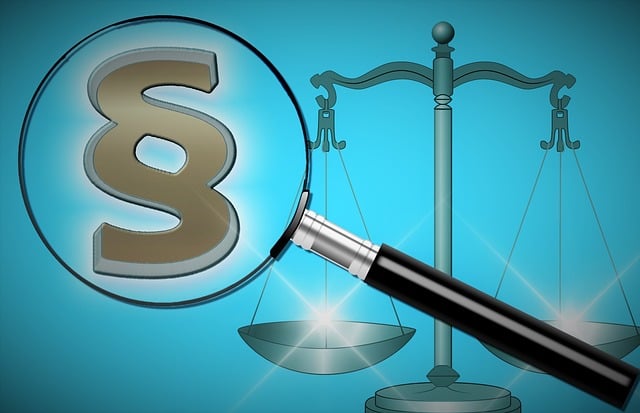Competition law plays a vital role in fostering innovation by promoting fair market competition. It prevents monopolies, encourages price variations, and supports new ideas. Common violations include price-fixing, market division, and dominance abuse. Regulatory bodies enforce laws through case studies like the Microsoft antitrust scandal. By creating a level playing field, these laws safeguard against anti-competitive practices, drive economic growth, and benefit businesses, philanthropics, politics, and consumers alike.
“Unleashing market competition is vital for fostering innovation and driving economic growth, but when businesses engage in antitrust violations, these benefits can be hindered. This article explores the intricate world of competition law and its impact on industries. We delve into common behaviors that breach market rules, analyzing their effects on innovation. Through notable case studies, we reveal the consequences of anti-competitive practices. Furthermore, it examines enforcement strategies to promote fair competition, emphasizing the role of antitrust laws in nurturing a robust and innovative marketplace.”
- Understanding Antitrust Laws and Their Impact on Industries
- Common Behaviors That Violate Market Competition Rules
- The Effects of Anti-Competitive Practices on Innovation
- Case Studies: Notable Antitrust Violation Scandals
- Enforcement Strategies to Promote Healthy Market Competition
Understanding Antitrust Laws and Their Impact on Industries

Antitrust laws, also known as competition laws, play a pivotal role in shaping industries and fostering innovation. These regulations are designed to promote fair market practices, prevent monopolies, and encourage healthy competition among businesses. By ensuring a level playing field, antitrust laws incentivize companies to innovate, drive down prices, and offer consumers a wider range of choices. The impact is far-reaching, affecting not just business strategies but also the overall economic landscape and the welfare of society as a whole.
The role of competition law in innovation cannot be overstated. It acts as a catalyst by creating an environment where new ideas and entrants are welcomed, fostering a culture of continuous improvement and progress. When companies compete, they are more likely to invest in research and development, leading to breakthroughs that benefit consumers. Moreover, these laws protect against anti-competitive practices like price fixing, market division, and abuse of dominant market positions, thereby preventing barriers to entry and ensuring that businesses, both large and small, can thrive. For his clients, understanding these regulations is crucial for navigating the legal landscape while promoting innovation within their respective industries.
Common Behaviors That Violate Market Competition Rules

In the realm of antitrust law, ensuring fair market competition is paramount to fostering innovation and consumer welfare. A variety of behaviors can disrupt this balance and lead to antitrust violation cases. One common practice is price-fixing, where businesses collude to set prices, eliminating competition and limiting consumer choices. This behavior directly contradicts the role of competition law in driving innovation by stifling price variations that could encourage new ideas and products.
Another frequent violation involves market division, where companies partition territories or customer groups to limit competition from rivals. Such practices prevent consumers from accessing a wide range of options, potentially increasing prices. The role of competition law in innovation is further undermined when businesses abuse their dominance by stifling competition through aggressive pricing strategies, exclusive dealing contracts, or using their market power to disadvantage competitors. These actions can have detrimental effects across the country, impacting not just general criminal defense cases but also the overall health of the economy and the innovative spirit that drives it.
The Effects of Anti-Competitive Practices on Innovation

The Role of Competition Law in Innovation
Anti-competitive practices, such as price fixing and market division, can significantly stifle innovation. When companies collude to suppress competition, they limit the entry of new ideas and technologies into the market. This lack of competition often results in higher prices for consumers and reduced product quality. Moreover, it discourages entrepreneurial ventures, as startups may hesitate to enter a space dominated by established firms that have conspired to maintain their market power.
Competition law, therefore, plays a crucial role in fostering innovation. By enforcing anti-trust violation cases, regulatory bodies ensure a level playing field where new ideas can flourish. This promotes a dynamic marketplace characterized by diverse products and services at competitive prices. In the event of suspected anti-competitive behavior, a robust general criminal defense strategy may involve challenging the evidence and presenting a complete dismissal of all charges to secure the best possible outcome, including jury trials as a safeguard for the accused.
Case Studies: Notable Antitrust Violation Scandals

In the realm of business, the role of competition law in fostering innovation cannot be overstated. Case studies of notable antitrust violation scandals offer valuable insights into the consequences of stifling market competition. One prominent example is the Microsoft case in the 1990s, where the company was accused of leveraging its dominant position in the operating systems market to hinder competition in related sectors, such as web browsers and media players. This scandal underscored the importance of competition law in ensuring fair play and promoting innovation across various industries.
These controversies often involve complex strategies employed by powerful corporations to maintain or expand their market dominance. From abusing market power through anti-competitive practices to engaging in price fixing, these cases highlight the need for robust white collar defense mechanisms. For his clients facing such charges, navigating these legal complexities requires a deep understanding of antitrust laws and their impact on respective business models. By studying these scandals, businesses can better understand their obligations to uphold fair competition, thereby fostering an environment conducive to innovation and growth.
Enforcement Strategies to Promote Healthy Market Competition

Enforcing antitrust laws is a delicate balance between promoting fair competition and fostering innovation. Regulatory bodies employ various strategies to ensure markets remain vibrant and competitive. One key approach involves monitoring mergers and acquisitions, preventing those that could stifle competition or lead to monopolistic practices. This includes scrutinizing deals between direct competitors to avoid limiting consumer choices and driving up prices.
The role of competition law in encouraging innovation cannot be understated. By promoting a diverse and dynamic marketplace, antitrust laws create an environment where businesses are incentivized to innovate, improve products, and offer better services to stay ahead. This benefits both the philanthropic and political communities by ensuring fair trade practices and maintaining economic stability. Moreover, these measures protect corporate and individual clients from anti-competitive behaviors that could lead to higher costs and reduced options. Effective enforcement strategies aim to avoid indictment while upholding the principles of a healthy market, ultimately contributing to long-term economic growth and development.
Antitrust laws play a pivotal role in fostering healthy market competition and driving innovation. By understanding these laws, identifying common violation behaviors, and studying notable scandals, businesses can navigate their industries ethically and responsibly. Enforcement strategies that promote fair practices encourage a vibrant ecosystem where competition thrives, leading to advancements in technology and better outcomes for consumers. The role of competition law in fostering innovation is clear: it ensures a level playing field, encourages new ideas, and promotes sustainable growth across various sectors.






